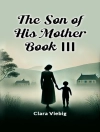In 'Sir Nigel, ’ Arthur Conan Doyle immerses readers in a richly woven tapestry of the medieval era, following the adventures of the youthful Sir Nigel Loring—a quintessential English knight brimming with chivalric ideals. The narrative harmoniously blends historical fact with vivid fictional elements, showcasing Conan Doyle’s masterful use of period language and knightly themes. Amidst a backdrop of the Hundred Years’ War and the tumultuous political landscape of 14th century England and France, the novel explores themes of honor, bravery, and the quest for glory, all rendered in Conan Doyle’s elegant and accessible prose. As a prolific writer steeped in the romanticism of his time, Arthur Conan Doyle’s experiences as a medical doctor and his fascination with the lore of knighthood undoubtedly influenced the creation of 'Sir Nigel.’ Conan Doyle’s exploration of heroism is not merely narrative escapism; it reflects his pursuit of ideals that resonate with modern notions of integrity and valor. This novel, which serves as both a prequel and a companion to 'The White Company, ’ offers deep insights into the nature of loyalty and friendship against a historical backdrop. 'Sir Nigel’ is a compelling read for those captivated by tales of chivalry and adventure. It invites readers to revel in a bygone era where valor and loyalty were paramount, while also serving as a meditation on the enduring spirit of honor. Scholars and casual readers alike will find Conan Doyle’s rich historical context and character development both enlightening and entertaining.
O autorze
Sir Arthur Conan Doyle (1859–1930) was a prolific Scottish author best known for his iconic creation, Sherlock Holmes. However, his literary repertoire extended far beyond the fog-laced streets of Victorian London. Doyle’s foray into historical novels is exemplified by works like 'Sir Nigel’ (1906), which offers readers a vivid portrayal of chivalry and adventure during the Hundred Years’ War. A physician by trade, Doyle inflected his writing with a meticulous attention to detail, a skill honed from his medical background. His narrative craft often combined his interest in science with the mystical, weaving tales that have captivated audiences for over a century. Doyle’s contribution to the detective genre redefined storytelling, with his deductive methods influencing innumerable authors and establishing conventions still adhered to in modern detective literature. While Sherlock Holmes remains his most enduring legacy, Doyle’s other works, such as 'Sir Nigel’, demonstrate his versatility and depth as a writer, reflecting the historical awareness and social commentary of his era. Doyle’s literary style, marked by a blend of fast-paced adventure and complex characters, continues to engage scholars and enthusiasts, cementing his place in the pantheon of great British authors.












